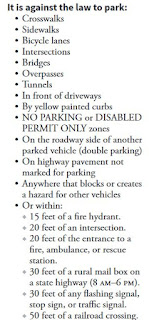I’M SO OLD I REMEMBER having to give hand signals before making a turn.
I’m so old, I actually studied state traffic laws from a real PAPER driver’s handbook.
I’m so old I actually expected – past tense – that today’s drivers would know and obey traffic laws and exercise a little common sense.
I live in south Florida where we are endangered daily by drivers from “elsewhere” who insist on bringing their driving habits – good and bad – with them.
Some eventually get a Florida driver’s license, somehow managing to pass the written test. The handbook1 now is online so everyone, in theory, can read it. (Most local lending libraries have computers patrons can use for free.)
- Florida offers the online handbook in English and Spanish, and a sample test in English, Spanish, and Creole. This is interesting because ALL Florida road signs not already in international pictographs, are in English, and Creole speakers would be hard-pressed to find anyone who speaks Creole anywhere away from the Gulf coast. Florida will provide translators for those who lack English comprehension … further endangering anyone who ventures onto Florida’s highways and byways.
One of the more aggravating things in my neighborhood, with its narrow two-way streets, is parking close to an intersection.
That seems reasonable even when the vehicle is a standard sedan or coupe.
This morning, as I went out, some folks who neither can read English or who took the time to read the handbook in ANY language, parked a LARGE truck at the corner. Not even five feet from the intersection.
The PROBLEMS are two:
- 1. Drivers on my street must go into oncoming traffic to make a turn (it’s a “T” intersection).
2. Drivers coming from the east – the truck is on he east side of my street, cannot see cars about to turn into the oncoming traffic side of my street.
The truck probably is just beyond the 15 foot minimum from the across the street fire hydrant.
There is another corner where cars are parked at the corner – again, not even 5 feet from the intersection.
Granted, there is not a lot of traffic in the neighborhood, but COMMON SENSE should tell drivers not to park at an intersection.
I suppose common sense went the same way as common courtesy, correct grammar, and spelling (I c u).
It is one thing for a driver to speed through a red light; it’s another to pass a stopped school bus loading or unloading passengers.
Back in the day, passing a school bus with the STOP sign out and the lights flashing often meant a trip to jail – do not pass go. Now, not so much.
That’s OK; the STOP sign is in English and the warning about flashing red lights also is in English, but, since English comprehension is NOT a requirement for a Florida driver’s license . . . you do the math.
There is a fire station on a road I often travel. In the last two days, the normally flashing yellow CAUTION light has turned red. This is supposed to mean an emergency vehicle is about to exit the station and needs the right-of-way.
Yesterday and again today, a number of drivers chose to ignore the red light and kept on going. Fortunately, the time between when the light goes red and the time the emergency vehicle exits is sufficient for several scofflaws to get across the crossing dedicated to the fire department.
Back in the day, drivers actually moved their vehicles out of the way of emergency vehicles. Today, perhaps because the radio or CD player is blaring and the A/C or heater fan is making a racket, until the emergency vehicle is on the back bumper, drivers plea that they never heard the siren or saw the flashing lights – never look into a mirror to know what is behind or next to your vehicle.
Things have changed since I got my learner’s permit in ‘57, and – alas – not for the better.
I suppose I shouldn’t complain about drivers. Bicycle riders and pedestrians ignore the laws as well.
Sources
1. Handbook: http://tinyurl.com/yafdn8yy
PLAGIARISM is the act of appropriating the literary composition of another, or parts or passages of his writings, or the ideas or language of the same, and passing them off as the product of one’s own mind.



No comments:
Post a Comment